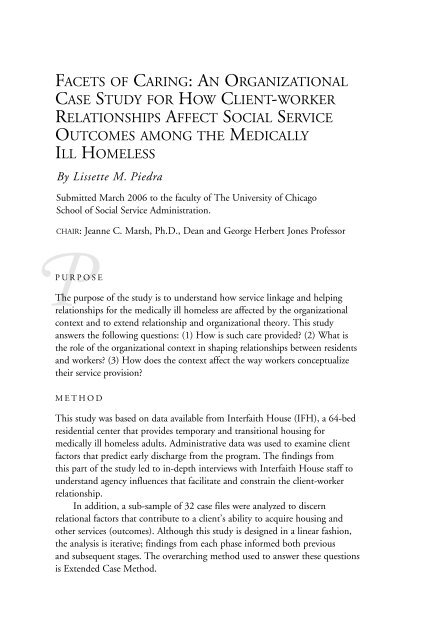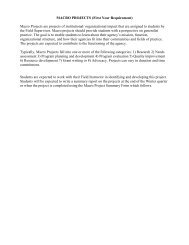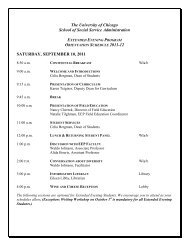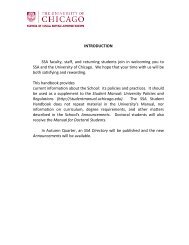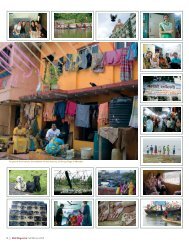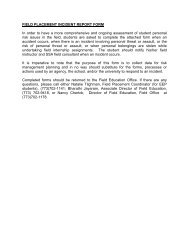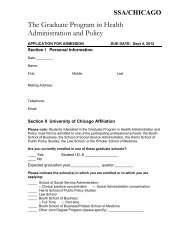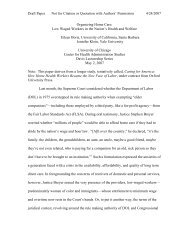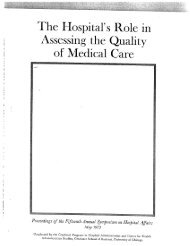2006 - School of Social Service Administration - University of Chicago
2006 - School of Social Service Administration - University of Chicago
2006 - School of Social Service Administration - University of Chicago
Create successful ePaper yourself
Turn your PDF publications into a flip-book with our unique Google optimized e-Paper software.
FACETS OF CARING: AN ORGANIZATIONAL<br />
CASE STUDY FOR HOW CLIENT-WORKER<br />
RELATIONSHIPS AFFECT SOCIAL SERVICE<br />
OUTCOMES AMONG THE MEDICALLY<br />
ILL HOMELESS<br />
By Lissette M. Piedra<br />
Submitted March <strong>2006</strong> to the faculty <strong>of</strong> The <strong>University</strong> <strong>of</strong> <strong>Chicago</strong><br />
<strong>School</strong> <strong>of</strong> <strong>Social</strong> <strong>Service</strong> <strong>Administration</strong>.<br />
CHAIR: Jeanne C. Marsh, Ph.D., Dean and George Herbert Jones Pr<strong>of</strong>essor<br />
PPURPOSE<br />
The purpose <strong>of</strong> the study is to understand how service linkage and helping<br />
relationships for the medically ill homeless are affected by the organizational<br />
context and to extend relationship and organizational theory. This study<br />
answers the following questions: (1) How is such care provided? (2) What is<br />
the role <strong>of</strong> the organizational context in shaping relationships between residents<br />
and workers? (3) How does the context affect the way workers conceptualize<br />
their service provision?<br />
METHOD<br />
This study was based on data available from Interfaith House (IFH), a 64-bed<br />
residential center that provides temporary and transitional housing for<br />
medically ill homeless adults. Administrative data was used to examine client<br />
factors that predict early discharge from the program. The findings from<br />
this part <strong>of</strong> the study led to in-depth interviews with Interfaith House staff to<br />
understand agency influences that facilitate and constrain the client-worker<br />
relationship.<br />
In addition, a sub-sample <strong>of</strong> 32 case files were analyzed to discern<br />
relational factors that contribute to a client’s ability to acquire housing and<br />
other services (outcomes). Although this study is designed in a linear fashion,<br />
the analysis is iterative; findings from each phase informed both previous<br />
and subsequent stages. The overarching method used to answer these questions<br />
is Extended Case Method.


